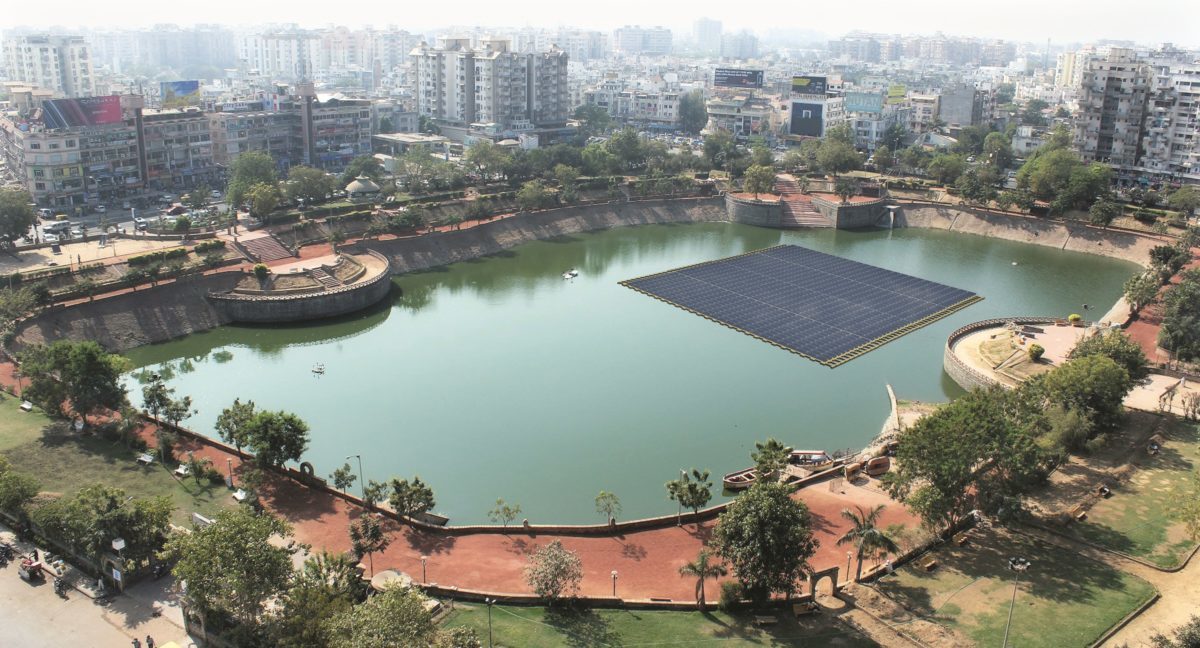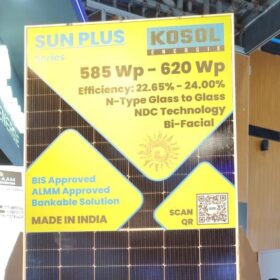India is planning large-scale floating solar arrays on hydropower reservoirs and other bodies of water in Tamil Nadu, Jharkhand and Uttarakhand, as well as at the Lakshadweep islands.
“India has sufficient land for traditional solar installations, much of it is in remote areas inhospitable to agriculture, including deserts,” Shailesh K. Mishra, Director of Power Systems at the Solar Energy Corporation of India (SECI), told the Thomson Reuters Foundation. “Putting solar panels on water, by comparison, cuts transmission costs by moving power generation closer to the people who need the energy.”
It is not the first time India has toyed with the idea of using reservoirs and hydropower sites for floating solar. SECI has already proposed 10 GW of solar be developed on such sites over the next three years, and such plans offset the physical and legal hurdles of aggregating locations for land-intensive solar projects.
Rising tide floats solar projects
Of late, several tenders for relatively small-scale floating PV projects have been issued, including a total 1 GW worth by the Maharashtra State Electricity Distribution Company Limited, and 10 MW by the Lakshadweep Energy Development Agency. In Uttar Pradesh, SECI has increased the capacity of floating solar from 100 to 150 MW.
Last month, SECI extended India’s largest floating solar tender for a seventh time. The 150 MW project will be set up on Uttar Pradesh’s Rihand Dam, India’s largest by volume and the nation’s largest artificial lake.
This year, the Greater Visakhapatnam Smart City Corporation Limited commissioned a 2 MW grid-connected floating solar project on the Mudasarlova reservoir which is currently the largest operational floating solar project in India, dethroning a 500 kW project commissioned in Kerala in December.
According to a report by the World Bank Group and the Solar Energy Research Institute of Singapore, the global potential of floating solar is estimated to be around 400 GW. China accounts for the largest chunk of the world’s total, with 1.1 GW of capacity.
This content is protected by copyright and may not be reused. If you want to cooperate with us and would like to reuse some of our content, please contact: editors@pv-magazine.com.








By submitting this form you agree to pv magazine using your data for the purposes of publishing your comment.
Your personal data will only be disclosed or otherwise transmitted to third parties for the purposes of spam filtering or if this is necessary for technical maintenance of the website. Any other transfer to third parties will not take place unless this is justified on the basis of applicable data protection regulations or if pv magazine is legally obliged to do so.
You may revoke this consent at any time with effect for the future, in which case your personal data will be deleted immediately. Otherwise, your data will be deleted if pv magazine has processed your request or the purpose of data storage is fulfilled.
Further information on data privacy can be found in our Data Protection Policy.